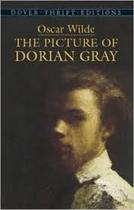 Introduction The seventh selection of Half Half Man’s book club was Oscar Wilde’s The Picture of Dorian Gray. It was a haunting and chilling book for me to read. I didn’t particularly like the subject matter or the plot development; I kept getting angry at the characters (but maybe the author’s intention was indeed to provoke strong emotion). What I did enjoy were the themes of beauty and art that the book brought up, as both relate directly to magic. And I thoroughly appreciated the actual beauty and art present at the meta-level of the book’s writing itself. The role of beauty in the book’s content Beauty seemed to me to be the central character of the book (not Dorian). It became Dorian’s mission in life, for which he traded his moral character and soul and towards which he sought any and every experience. Chapter 2 presented the dichotomy between beauty and intellect, and while such a contrast was likely meant to evoke strong emotion and show how many of Lord Henry’s principles were meant to be contrarian for the sake of being contrarian, it still didn’t sit well with me. Chapter 4 took this idea even further: “The search for beauty is the real secret of life.” And by Chapter 10, it was clear how devoted to the sensual life Dorian had become, studying perfumes, jewels, and music, and using any evil and sin possible to fill his different senses with some (superficial?) amount of beauty. I think that both beauty and intellect are worthwhile values and pursuits, and one doesn’t have to harm the other. This book showed how pursuing beauty to an extreme can be damaging, and the same can likely be shown for pursuing intellect alone. But I think each can have their place and merit. I think that in some ways Lord Henry’s (and subsequently Dorian’s) devotion to beauty was admirable in the sense of artistic commitment, but I kept wondering how else Dorian could have pursued and felt beauty without necessarily involving evil. The role of art in the book’s content One of the most physical incarnations of beauty in the book that served to demonstrate its power was art, and this art took different forms: paintings, music, and theater. Thus, art played an important role in the actual content of the book and served to illustrate the intoxicating (toxic?) influence of beauty on the characters. In Chapter 1, Wilde wrote about “art as the reflection of the artist more than the content.” This made think a lot about magic, as a performance usually shows a lot more about the magician and his or her style and character than the art form. Many important plot elements came to life through the theater and Sibyll Vane’s acting. In Chapter 6, Dorian even said, “I love acting. It is so much more real than life.” This reminded me of the oft-quoted idea that “life imitates art.” The theater played a central role in the book, creating Dorian’s first innocent emotions of love and romance and also spoiling it (and him) in the very same place. The theater was the place where the characters changed into new people, and the events that they saw on stage literally changed them afterwards. Many people think that theater is just for entertainment and to escape boredom (which was Lord Henry’s worst imaginable emotion to feel), but Wilde shows how it can actually have a profound impact on people’s lives, inspiring them for good and for evil. The role of beauty and art in the book’s writing What I did enjoy throughout the book the most was the actual beauty and art present in the book’s writing itself. Wilde’s masterful prose was clearly meticulously crafted to make a statement about how the English language can be wielded beautifully to tell a most ugly story. His writing reminded me more of poetry than prose: it was intricate, ornate, and carefully crafted. As Denis Behr remarked, Lord Henry “apparently cannot utter a comment that does not sound like a profound aphorism.” It’s self-evident how hard Wilde worked to literally decorate every page with such aphorisms and witty comments, and in this way, he showed himself to be like an artist with the written word. For me, this is the most inspiring part of this book for magicians learning to better script their effects. Conclusion The seventh selection of Half Half Man’s book club was for me a depressing and foreboding tale. It showed the power that beauty and art can have, and it showed how one’s obsessions can lead one to very dark places. Magicians have the power to make fantasy and impossible beauty come to life, and this power should be wielded carefully and towards good end. And they can learn a lot from Wilde’s expert writing and prose -- attention to every detail and making every statement be filled with beauty and purpose.
0 Comments
Your comment will be posted after it is approved.
Leave a Reply. |
Archives
June 2024
Categories
All
Subscribe |
 RSS Feed
RSS Feed
